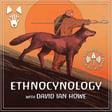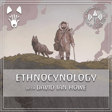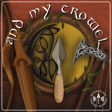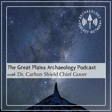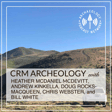
Ethnocynology and the Apocalypse - Ep 04
In this episode of Ethnocynology with David Ian Howe, David gives an introduction to an idea he’s had for a while to discuss and explore the anthropological themes of apocalyptic fiction.
Apocalypse stories are often set in a bleak world, telling bleak stories. Yet they are fundamentally always HUMAN stories, using a bleak world to explore questions regarding philosophy, morality, and above all…what it means to be human.
But in these stories, the philosophical aspects of what it means to be human are often explored. Yet I think a reason we are so addicted to these stories is that we have a yearning to explore the lives of our past, zoological selves. It’s hard to write a story about the Paleolithic…the set design, the languages, the limited world restricted by the fear of shitty animation (mammoths, ice age fauna). Yet in [post apocalypse stories, we explore the world before civilization, by exploring the world after it. It’s far easier to portray English speaking humans behaving zoologically in the ruins outside of Boston, than it is a period piece set in Paleolithic France with proto-dene-Caucasian subtitles.
We yearn to live in a world without our modern complexities and burdens (last march of the Ents).
If you don’t believe me, think of how much money we spend on hiking, camping, and traveling to areas to spend a day, let alone a week a year outside? Then we must ask for PTO. We must pay for gas, or a plane ticket, or even a campsite – we literally pay to sleep in nature (albeit I don’t mind bc the money goes to keeping the area natural).
So in stories like the Last of US, I Am Legend, and Station Eleven, we explore stories In what I would call the Organic Apocalypse. A world reclaimed by nature, where the earth very much alive, green, and returned to it’s natural state, rid of the disease of humans.
Transcripts
- For rough transcripts of this episode go to https://www.archpodnet.com/ethnocynology/04
Links:
ArchPodNet
- APN Website: https://www.archpodnet.com
- APN on Facebook: https://www.facebook.com/archpodnet
- APN on Twitter: https://www.twitter.com/archpodnet
- APN on Instagram: https://www.instagram.com/archpodnet
- Tee Public Store: https://www.teepublic.com/stores/archaeology-podcast-network?ref_id=5724
